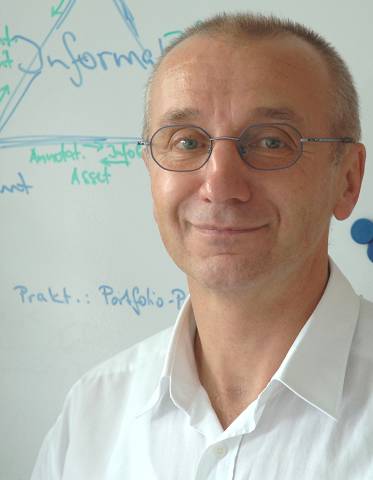József Györkös, University of Maribor
József Györkös is a full professor and researcher at the University of Maribor, Faculty of Electrical Engineering and Computer Science. His former activities include the position of state secretary, responsible for portfolios on information society, research, higher education and technology. In the capacity of the governing board member of Science Europe, he was involved in a worldwide initiative of research funders for open access to scientific publications and, consecutively, the Open Science itself. He is an active member of the ATHENA European University project team focusing on research and the editor-in-chief of both volumes of the ATHENA Research Book, published in open access.
Keynote lecture: Open Science – a reality check within ATHENA European University
Open science is well recognised and established policy principle of the European Union (2019) as well as UNESCO (2021) and is implemented by various educational and research institutions and societies. In the keynote lecture, the presentation of fundamental principles and ambitions of the open science policy will be followed by a selection of implementation models and use cases. From this point of view, the basic idea of open science will be assessed. The assessment would claim the differing expectations of various stakeholders, including the researchers, scholarly communication, research funders, publishers and society in general. In the second part of the lecture, a brief introduction to the ATHENA European university will be given, followed by the implementation models of the open science principles in the – diverse but homogeneous by interest – landscape of the ATHENA alliance partner institutions. The expected outcome of the lecture is to show how open science might serve as a “glue” in alliances with clear goals but – nevertheless – with heterogeneous membership regarding the initial mission, size and research capacities in different fields of science.
Bernhard Thalheim, Christian-Albrechts University at Kiel, Germany

Bernhard Thalheim has been a full professor of Computer Science at Christian-Albrechts Universität Kiel from 2003 till 2020 after being a professor in Dresden, Kuwait, Rostock, and Cottbus. He chaired database and information system groups since 1993. His work was awarded the P.P. Chen award by Elsevier in 2008. Since 2009 he has been an ER fellow. He is also the honorary Kolmogorov chair at Lomonossow University at Moscov in Russia since 2005. His main research area is (conceptual) modelling and its foundation. He is also interested in researching database technology, database programming, (distributed) object-relational information systems, business informatics, web information systems, performance tuning and forecasting, data mining, data warehouses and OLAP foundations, content management, database and information systems theory, database systems and software architecture, discrete mathematics, and logics. He was one of the founders of the ER Conferences Steering Committee, chaired it twice and was a member of this Steering Committee from 1993 until 2012.
Keynote lecture: Modelology – A New Scientific and Engineering Discipline: The Science and Practice of Models and Modelling
Models are used in many ways in science and technology as well as in all phases of daily life up to ceremonies, presentations, stencils or a guide. That’s why models are universal tools of every human activity since every object and idea can become a model, and models are usually much simpler and focused on concrete use. That’s why we need the new discipline modelology.
The thesis: Every object and every idea can be used as a model in an application scenario, if it becomes useful in the scenario as an instrument in a function. Through this use and function, an object or idea becomes a model, at least for a certain or long time, for the respective model user in its context and environment.
Behind the thesis: Models are works of art of thinking. They come in the most diverse forms: small ingenious, ever-present, medium-sized or even elaborate ones of imposing size and full of hidden secrets. Quiet ones, animated by a flash of inspiration. Groundbreaking and revolutionary. Methodically overwhelmingly sophisticated ones that stand on the shoulders of giants. Simple ones that are so well put together that everyone likes them and understands them and cannot refuse them.

